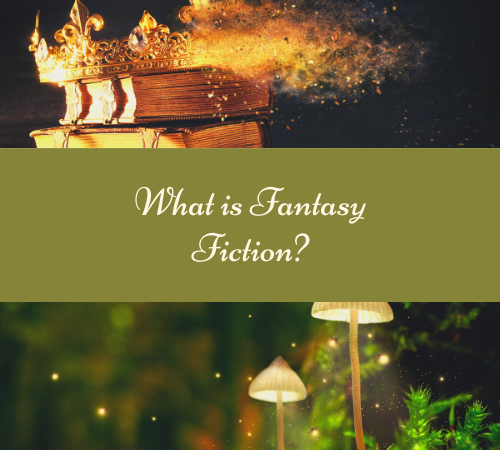The term “fantasy fiction” refers to a type of literature in which the storyline is improbable to occur in actual life. Frequently, the narrative incorporates magic or witchcraft and takes place on another planet or in a previously unknown realm of our world.
Typically, the setting’s general tone is medieval, with elements such as architecture, dress, language, and technology evocative of the European Middle Ages. Often, the story includes mythological creatures or talking animals (who may or may not wear clothing and dwell in houses), as well as witches or sorcerers. Frequently, fantasy authors will devote a whole series of novels to the same setting or people.
Subgenres in Fantasy:
Alternate History
This type of fantasy presents a fictitious narrative set within a genuine historical era, frequently using actual historical events but altered to incorporate an element of magic or fantasy. Many “what if” situations occur at critical moments in history and provide results that differ from what is documented.
Children’s Story
This fantasy sub-genre often has a kid protagonist who endures adversity or possesses an exceptional talent. Often, mythical/fantastical animals aid and obstruct the youthful protagonist. Themes that often run through these tales, aimed at an audience not yet categorized as Young Adult (YA), include overcoming hardship, collaborating with others, seeking allies, understanding from older people, and confronting one’s fear.
Comedy
These are lighthearted stories, frequently set in fantasy settings, and may contain parodies of more serious works. It is classified as low fantasy (as opposed to high fantasy), although not all low fantasy is humorous.
Contemporary
This fantasy type is a narrative set in the modern era (or bears a resemblance to contemporary times). It frequently incorporates magic, although it is not evident or easily explicable rationally. There is often a crossover between the “real world” and the fantasy realm, which may contain magic or individuals with paranormal abilities.
Dark Fantasy
This is a darker side of fantasy, incorporating themes of horror, mystery, and/or a general sense of foreboding or doom. A recurring theme is supernatural events that take on a gloomy, dismal tone. It is frequently a contemporary fantasy, with the primary distinction being the inclusion of horror themes.
Fairy Tale
This type of fantasy comprises stories presented in the manner of adult fairy tales or are contemporary retellings of classic fairy tales. There is the extensive usage of fairy tale themes, especially Grimm’s fairy tale clichés.
Fantasy of Manners
This subgenre is characterized by tales that mainly depend on the Comedy of Manners, a kind of social satire. Often situated in a city, this kind of tale has minimal magic or exotic creatures. Rather than that, it will concentrate on morality and societal institutions, especially those affecting women, often at the expense of an intricate narrative.
Heroic
This type of fantasy features heroic adventures set in fantastic locations. This subgenre often has complex storylines and lineages and a protagonist who is typically hesitant to be a hero and comes from modest origins.
High Fantasy
This type includes fantasy based on a made-up universe with an emphasis on epic people or locations. The distinction between low and high fantasy is based on the setting.
Historical
Fantasy-based in a historical age, often before the twentieth century, with an element of magic introduced. This subgenre usually includes fantasy tales based on legends set during the Arthurian, Celtic, or Dark Ages periods.
Low Fantasy
A subgenre of fantasy that depicts a realistic world in which magic is often but not always present. This is in opposition to High Fantasy, which occurs in a fictitious world populated by supernatural creatures. The term “low” refers to the work’s predominance of conventional fantasy themes rather than its quality.
Magical Realism
This subgenre depicts a world in which ordinary and magical elements coexist peacefully. It is a term that alludes to magic or the supernatural portrayed in a realistic or mundane context.
Mythic
This fantasy subgenre relies heavily on mythology to produce a unique fusion of fantasy and folklore. It often has gods or goddesses as protagonists and may retell earlier myths set in either fantasy or actual settings. Although mythic fantasy and urban fantasy often overlap, mythic fantasy includes many current works set in non-urban locations.
Superhero
Characters in this subgenre possess extraordinary powers. Concealed identities and crime-fighting are two characteristic themes. The protagonist often has superhuman strength or unique skills, establishing a contrast between “regular” people and those who possess “superhuman” characteristics.
Sword and Sorcery
This subgenre features medieval-style adventures with an emphasis on romance. Additionally, you’re likely to encounter magical people or mystical elements in the narrative. Sword-wielding heroes engaging in thrilling and violent adventures are frequent themes, as are aspects of magic and the supernatural. In contrast to high fantasy, Sword and Sorcery stories are more concerned with human conflicts than world-threatening events.
Urban
This subgenre of fantasy has magical aspects placed in an urban environment. The locations do not have to be future; they may be historical, real, or fictional. Urban Fantasy novels are set mainly in the actual world. Still, they include fantasy elements, such as the revelation of earthbound mythical creatures, the cohabitation or clash of humans and paranormal entities, and other alterations to city life.
Young Adult
An adolescent is often the protagonist in this type of fantasy. Typically, magic is included, as are friends who assist the protagonist in defeating a magical adversary. Character development is a common cliché, as are mystical aspects and unanticipated connections between magical components and the actual world that affect the protagonist’s development into an adult.
Are you looking for a literary agent? Handing your book to publishers is a daunting task. However, companies like Quantum Discovery can help you with your needs when it comes to having your book delivered to the right publisher. Contact our professionals by calling (888) 755-6875 or visit quantumdiscovery.net to know more.

Pingback: Romance Fiction - Quantum Discovery